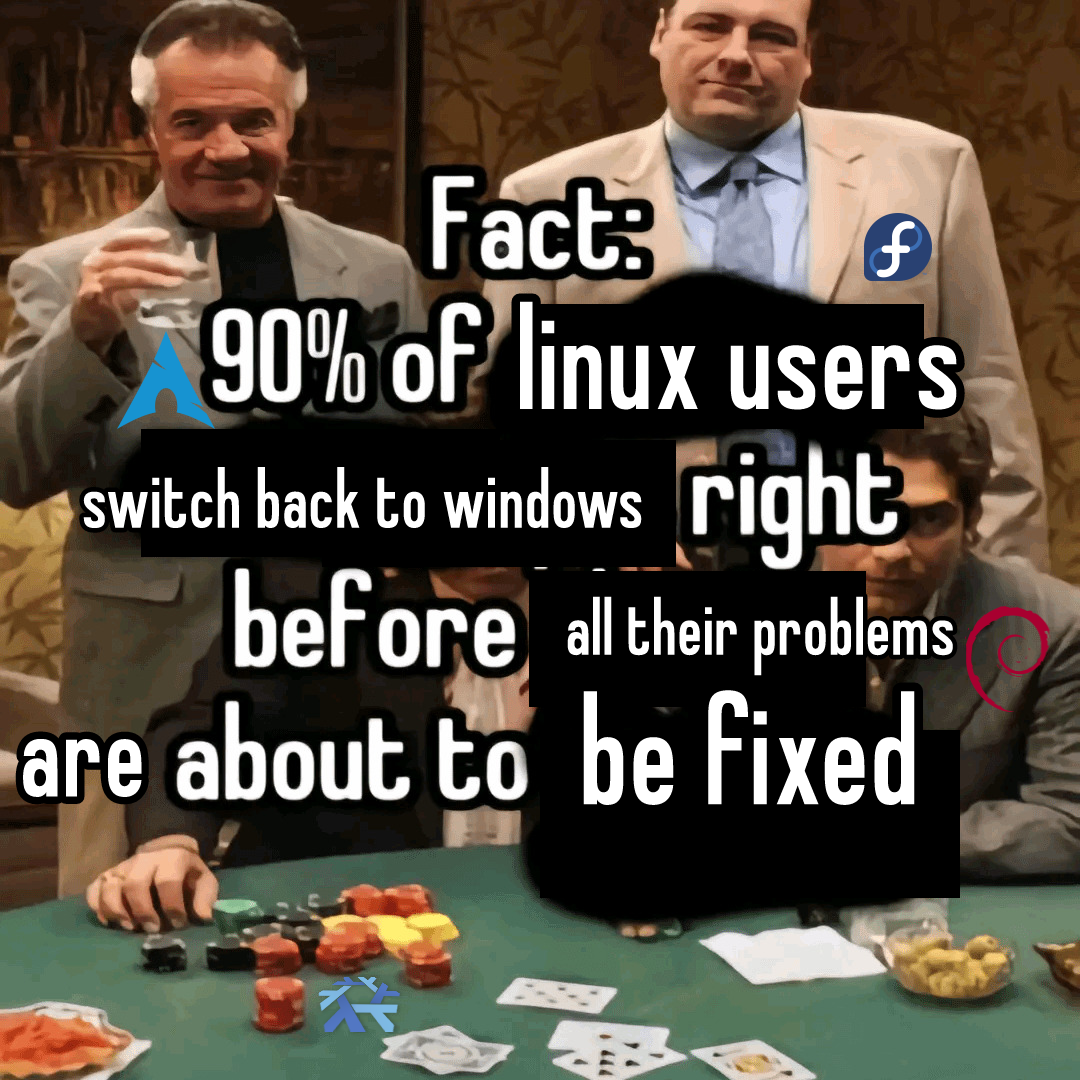this post was submitted on 20 Apr 2024
752 points (93.1% liked)
linuxmemes
21752 readers
738 users here now
Hint: :q!
Sister communities:
Community rules (click to expand)
1. Follow the site-wide rules
- Instance-wide TOS: https://legal.lemmy.world/tos/
- Lemmy code of conduct: https://join-lemmy.org/docs/code_of_conduct.html
2. Be civil
- Understand the difference between a joke and an insult.
- Do not harrass or attack members of the community for any reason.
- Leave remarks of "peasantry" to the PCMR community. If you dislike an OS/service/application, attack the thing you dislike, not the individuals who use it. Some people may not have a choice.
- Bigotry will not be tolerated.
- These rules are somewhat loosened when the subject is a public figure. Still, do not attack their person or incite harrassment.
3. Post Linux-related content
- Including Unix and BSD.
- Non-Linux content is acceptable as long as it makes a reference to Linux. For example, the poorly made mockery of
sudoin Windows. - No porn. Even if you watch it on a Linux machine.
4. No recent reposts
- Everybody uses Arch btw, can't quit Vim, <loves/tolerates/hates> systemd, and wants to interject for a moment. You can stop now.
Please report posts and comments that break these rules!
Important: never execute code or follow advice that you don't understand or can't verify, especially here. The word of the day is credibility. This is a meme community -- even the most helpful comments might just be shitposts that can damage your system. Be aware, be smart, don't fork-bomb your computer.
founded 2 years ago
MODERATORS
you are viewing a single comment's thread
view the rest of the comments
view the rest of the comments

Arch is not meant to be a daily driver if you're expecting "shit just works" stability long term when you just blindly run updates. You have to understand what you're updating and sometimes why.
If you want to use Arch, you need to invest in snapshots using
rsyncordd. Given how it's a rolling release, you should do this weekly. If something fucks up, grab all your logs and put them somewhere safe. Roll back and look at your logs to see what broke. Then apply updates as needed. You can ignore packages for quite a while. If you're not smart enough to understand it now, you may in the future. It takes time and practice.Debian based is only "out of date" feature wise because they do a package freeze. They ensure stability before release. Updates are largely security related.
To be fair if you set it up properly, you don't install a ton of stuff from the aur, and you stick to a major desktop like kde or gnome it's stable to the point of being boring.
I've recently switched to hyprland from kde just to have something to mess with or tweak when I feel like it. Sometimes they change the config file for hyprland and I have to fix it but I like it none the less. I used kde for a couple years with zero issues and only just switched desktops using the zx backdoor as an excuse to while my system.
This is coming from an individual that hasn't had an opportunity to switch from an Nvidia card yet.